#Elena Orsini
Explore tagged Tumblr posts
Text
La crisis de Occidente y la batalla por las almas europeas

Andrea Zhok
La fase histórica que vivimos está marcada por una crisis profunda, tal vez terminal, del imperio estadounidense. Con el reflujo de la globalización económica y el debilitamiento del dominio estadounidense sobre el mundo, se han acelerado los procesos de control, chantaje y desestabilización estratégica promovidos por los centros de poder estadounidenses.
Dado que los países del bloque de la alianza estadounidense son todos democracias liberales, el problema del control de la opinión pública ocupa un lugar central. Así pues, ha comenzado una batalla fundamental por el alma de las poblaciones occidentales, y esta batalla no tiene su epicentro en América, sino en Europa, donde la tradición de una cultura crítica y plural era mucho más vigorosa que en Estados Unidos.
El primer paso en esta dirección fue el sometimiento de la Unión Europea a la cadena de mando estadounidense, un sometimiento puesto a prueba por el asunto de la pandemia, y ahora bien asentado. Pocos recuerdan que el proyecto europeo nació bajo los auspicios de representar un contrapeso al poder estadounidense, un tercer polo organizado que rechazaría no sólo el modelo soviético, sino también el de los aliados estadounidenses. Este papel autónomo, inspirado en la experiencia de los Estados de bienestar europeos de la posguerra, entró en crisis con la transformación de la Comunidad Europea en Unión Europea, con el giro neoliberal del Tratado de Maastricht, y ahora es sólo un recuerdo lejano.
Para comprender los extremos de la actual batalla por las almas, echemos un vistazo, a modo de muestra, a algunos hechos recientes relacionados con el conflicto palestino-israelí.
En los últimos días, la UE ha pedido a META que retire de sus plataformas todo contenido considerado "desinformación", so pena de multas de hasta el 6% de la facturación global.
El comisario europeo Thierry Breton intervino oficialmente ante Elon Musk para instar a que se tomen medidas para controlar y censurar la "desinformación" en Twitter en relación con el conflicto palestino-israelí.
La Ley de Servicios Digitales aprobada por la Unión Europea en 2022 es la primera intervención legislativa que institucionaliza la censura en las plataformas mediáticas europeas. Por supuesto, lo que recibe el estigma de "desinformación" y "noticias falsas" son siempre sólo las tesis que trastornan la narrativa actual, y el control sobre las agencias de "verificadores de hechos independientes" garantiza que las autoridades tengan continuamente las pelotas justas para aplastar.
Mientras tanto, se ha reanudado el carrusel de cambios y enmiendas de las páginas de Wikipedia con contenidos incómodos, en la misma línea de lo visto con los Covid y Ucrania.
En Italia, el aparato de porras mediáticas en servicio permanente que pueblan televisiones y periódicos se ha activado en las ya habituales expediciones punitivas hacia los disidentes con un perfil público relevante. Así, Alessandro Orsini y Elena Basile se han convertido en objeto insistente de burlas, emboscadas mediáticas y fatwas. El pobre Patrick Zaki, de ser un ídolo de la corriente dominante, cayó instantáneamente en desgracia al jugarse candidaturas europeas y beneficios varios por decir ingenuamente lo que pensaba sobre Israel y Palestina. Moni Ovadia, para quien los escuadrones mediáticos no recurren a la habitual ecuación antisionista = antisemita, fue instado a dimitir de su cargo de director del teatro municipal de Ferrara.
A nivel internacional, cualquier periodista que no se limite a copiar sistemáticamente los panfletos de los apparatchiks estadounidenses corre el riesgo de recibir una ráfaga de ametralladora accidental. Esto les ocurrió el otro día a periodistas de Reuters y Al Jazeera, pero la lista de periodistas asesinados por el ejército israelí en los últimos años es larga.
Menos mal que hay periodistas como los nuestros, que se sientan en el comedor romano girando banderas de abanico y ejerciendo de ventrílocuos del amigo americano; de lo contrario, uno no sabría por dónde canalizar las prebendas y los elogios.
A estas alturas, todo el interés estadounidense radica en la multiplicación de focos de conflicto porque ello le permite explotar sus dos últimos puntos fuertes residuales: su perdurable preeminencia en armamento convencional y su aislada situación geográfica, que hace a Estados Unidos inmune a las consecuencias inmediatas de los conflictos que suscita. Con esto en mente se entiende lo que reveló ayer la vista de correos electrónicos internos (Huffington Post), a saber, que el Departamento de Estado estadounidense ha disuadido a los diplomáticos que trabajan en asuntos de Oriente Próximo de hacer declaraciones públicas que contengan palabras como "desescalada", "alto el fuego", "fin de la violencia", "derramamiento de sangre", "restablecimiento de la calma". Las órdenes estables son echar gasolina al fuego.
En este contexto, controlar el flujo de la opinión pública es crucial.
El método -es importante entenderlo- ya no es el de la censura sistemática, que exigían los autócratas de hace un siglo, sino el de la manipulación y la censura cualificada.
A este respecto, se puede tomar el ejemplo de la "noticia" de hace cuatro días sobre los 40 bebés decapitados por Hamás. La noticia se difundió basándose en rumores y al día siguiente era la noticia principal en más o menos todos los medios de comunicación del mundo. Ayer, la periodista de la CNN Sarah Snider, que inicialmente hizo viral la "noticia", se disculpó porque la noticia no había sido confirmada. Sky News dijo hoy que la noticia "todavía" no había sido confirmada (después de cuatro días, ¿en qué se basan? ¿en expertos en efectos especiales?).
Ahora, algunos dirán ingenuamente que esta admisión por parte de la CNN es una señal de que existe libertad de prensa en Occidente. Pero, por supuesto, la asimetría entre una noticia sensacionalista salpicada en la portada de todo el mundo y las posibles dudas que más tarde se filtran entre líneas aquí y allá equivale políticamente a haber orientado a la mayoría de la opinión pública en una dirección definida (la indignación emocional contra los asesinos), incluso si dentro de unos meses o años se admitiera tranquilamente que la noticia carecía efectivamente de fundamento.
Es lo que podríamos llamar el "método Colin Powell", o el método de los "indios buenos son indios muertos".
Primero se crea un caso suficiente para demonizar a una de las partes y se hace con el vigor suficiente para producir una operación de exterminio.
Después, cuando la operación ha terminado, se admite con displicencia que las cosas no fueron así en realidad, al tiempo que se alardea de la propia honestidad y transparencia.
Primero agitaron frascos de supuestas armas químicas ante la ONU, aniquilaron un Estado soberano, mujeres, niños, perros y hámsters, y años después -entre un escocés y otro- admitieron con una sonrisa distraída que, bueno, era una treta, qué le vamos a hacer, el que la tenía la tenía.
Primero se extermina a la población indígena de nativos americanos, presentándolos como monstruos blancos sedientos de sangre, luego, cuando quedan reducidos a atracciones folclóricas, se pone en marcha una industria cinematográfica llena de indios buenos y colonos concienciados.
En el mundo contemporáneo, no hay necesidad de intentar la proeza, tan compleja como inútil, de bloquear al 100% la información veraz. Basta con la manipulación, la censura, el filtrado selectivo para las masas del público y durante el tiempo suficiente para crear algún daño irreversible.
Pero el cínico se engañaría a sí mismo si pensara que hoy este juego destructivo sólo tiene unos pocos millones de "peones palestinos prescindibles" en su centro. Si la situación no se congela y desactiva inmediatamente, en el centro de la actual gran operación de demolición están y estarán ante todo los pueblos de Europa.
Es Europa la que ya está sufriendo y sufrirá el impacto de la devastación de las relaciones con el Este con la guerra de Ucrania.
Y es Europa la que sufrirá el impacto de una desestabilización duradera en Oriente Próximo, donde un conflicto que implicara a Israel, Siria, Líbano, Irán y quizás también a Irak, Egipto, Jordania, etc. representaría una bomba social y económica indefinida para Europa, por no hablar de los riesgos de una implicación bélica directa.
Y curiosamente, el único mínimo común denominador de estos conflictos reside en el papel de Estados Unidos, que es también la fuerza más beneficiada y la que tiene mayor capacidad de influencia en los medios de comunicación internacionales.
Pero huelga decir que cualquiera que conecte los puntos es un conspiracionista.
Fuente: https://www.ariannaeditrice.it
Traducción: Enric Ravello Barber
0 notes
Photo
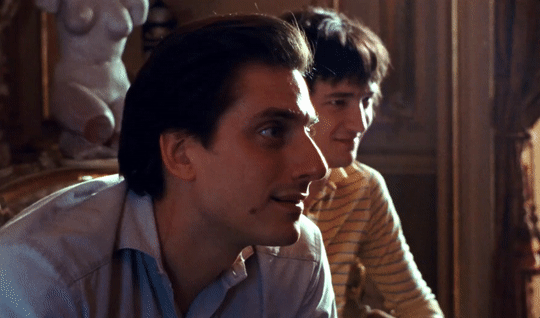



Martin + clapping too soon in his captivated enthusiasm
- Martin Eden (dir. Pietro Marcello)
#this part always makes me smile#martin eden#luca marinelli#elena orsini#jessica cressy#dailytogcast#userbooker#usernicolo#mine
352 notes
·
View notes
Text
The Ultimate And Entirely Correct Ranking Of Every Single Luca Marinelli Movie Love Interest
This post is exactly what it says in the title: I take every single movie Luca has ever been in, extract every single love interest of his and rank them all from worst to best both as characters and as love interests to those specific Lucas. The ranking is 100% biased. Of course, I’ll do my best to rationalize the placement of this or that character, but sometimes I just hate a bitch and there’s nothing anyone can do about it.
Also: Feel free to call me out on my blatant misogyny, since it’s pretty obvious that I actually genuinely hate women instead of bad writing, incompetent directing, underwhelming acting or just plain offensive character work.
Ok, let’s go. Obviously, spoiler alert for Luca’s entire filmography.
22. Antonia (Tutti i santi giorni)

This. This is a bitch I hate. She may or may not be the sole reason I’ve even decided to make this list. I hate her so much it made me hate her actress as a person, even though I have no idea what she’s like. The fact that this movie feels like her vanity project with this character as her self-insert doesn’t help, of course.
Why is Antonia the worst? Because she is aimless, entitled, bratty, whiny, envious, controlling, abusive, self-centered, self-pitying - and she never changes. She has no character arc to speak of, she never apologizes or redeems herself for all the shit she pulls (i.e. kidnapping a pregnant woman’s child and cheating on her boyfriend for the sole purpose of hurting him, even though she was already planning on leaving him anyway) and she gets a happy ending she doesn’t deserve. People might say she is traumatized by her past domestic abuse and miscarriage, but this is bullshit because: A) her ex-boyfriend beating her in the past is never treated seriously by the narrative, nor is the abuser himself portrayed as a monster (he’s more of a goofy dumbass, classy); B) usually when a character does something cruel because of their trauma, it happens in the first half of the movie, giving them a chance to work through their shit and move on a better person, whereas Antonia does it fifteen minutes before the end of the movie, and there is zero work involved. She doesn’t even get Guido’s forgiveness because he’s never mad at her in the first place. She hurts him and he begs her to come back. The movie literally tells us she doesn’t have to become a better person, nor does she need to overcome her trauma. She just needs to get married, i.e. something she specifically didn’t want to do at the start. I guess that’s what constitutes for an arc around here. Fuck Antonia and fuck the people who defend her.
Ok, now that I’ve lost half of you, let’s continue with less controversial takes.
21. Claudia (Lasciati andare)
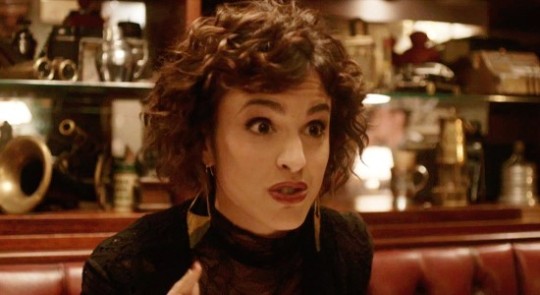
This one is easy. Ettore robs a jewelry store and goes to prison for that, with the jewelry still hidden. Claudia steals the booty from him, fucking KEEPS IT and lets him go back to prison for that! What a bitch! Not to mention she’s insanely annoying. The only character worse than her in that movie is the curmudgeonly main character. This film is unberable, you guys.
20. Antonella (Slam - Tutto per una ragazza)

She isn’t so much Valerio’s love interest as she is his ex, but this is my arbitrary list, and I find this bitch annoying enough to want to mention her. She’s a Cool Mom and she’s dumb as a rock. I hate everything she says, does and stands for. Literally zero redeeming qualities.
19. Elena Orsini (Martin Eden)
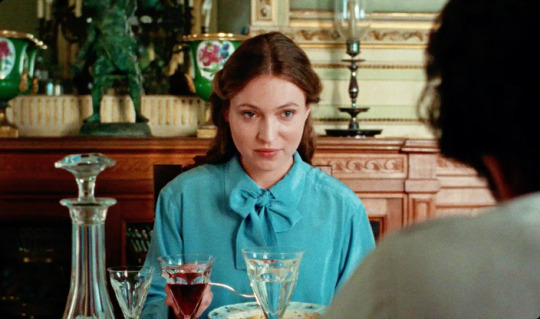
I find her so annoying I actually made a Martin Eden/Legally Blonde gifset with her as Warner. She is snobbish because she’s rich and educated but she has no idea how useless and pointless she is as a person. She is literally a tiny piece of nothing. Fuck her smug little face and fuck Martin for being dumb enough to build his entire life around wanting to please her.
18. Nina (Nina)
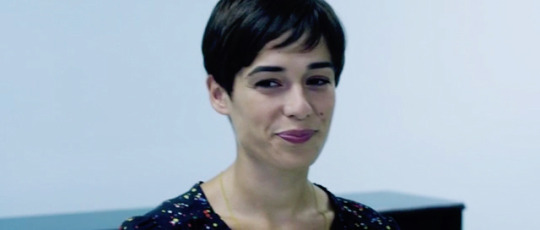
She is sinfully bland and boring and her wardrobe is that of a child.
17. Edward Pilaster (Die Pfeiler der Macht)
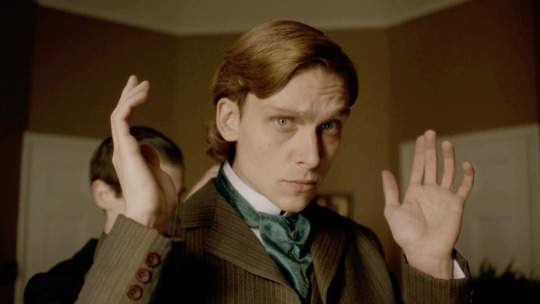
Mickey Miranda is a world class slut and he wasn’t happy at all with having to fuck this guy, which is saying a lot. Edward is needy, pathetic, talentless, worthless, and he has the audacity to be entitled because he’s rich. He didn’t deserve to be manipulated and used the way he was, but he’s no sugar plum, ok?
16. Augusta Pilaster (Die Pfeiler der Macht)
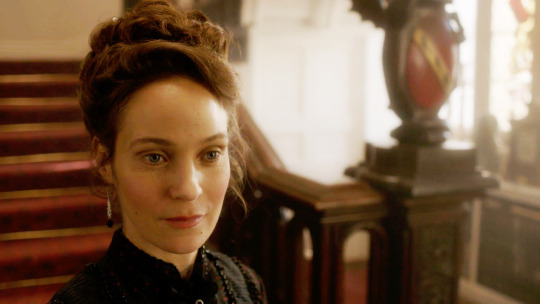
The mother of the aforementioned, she’s quite bad, though in completely different ways than her son. She’s cruel and scheming, and people have died because of her, but I give her points for girlbossiness her son doesn’t possess.
15. Alice Della Rocca (La solitudine dei numeri primi)

She didn’t really do anything wrong. She just annoyed the shit out of me.
14. Vittorio (Non essere cattivo)
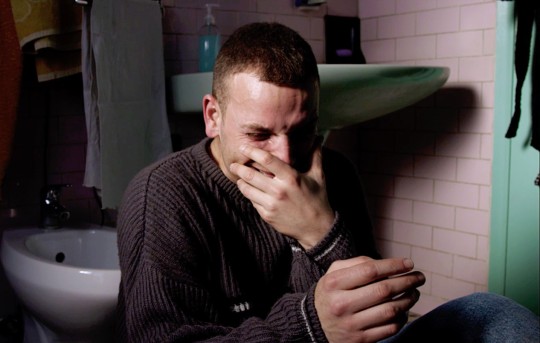
Let’s not argue whether he counts as a love interest. He does, moving on. I just want to make things perfectly clear: I don’t hate Vittorio because he stopped using and left his best friend behind. Drug addiction is complicated, and helping addicts who don’t want to be helped is basically impossible. No, the reason I hate Vittorio is his treatment of the women in his life. He is a total dick to Viviana, having no issues insulting and humiliating her in front of other people. At the same time, he becomes a limp, spineless slug as soon as Linda waves her sandy vag in front of his dumb face, and then he basically spends the rest of the movie being her little bitch. Fuck Vittorio, for real. (Fuck Linda too, btw, if she qualified for this list she’d be right there with Antonia.)
13. Mia (Il padre d’Italia)

Part of me agrees that nobody asked Paolo to play a white night to some random pregnant lady he doesn’t know, but the fact that Mia is so dismissive and ungrateful is annoying. Not to mention it’s kinda uncool to drink, smoke and take drugs while you’re pregnant. Mia is trashy, but she isn’t as bad or as annoying as the people before her.
12. Fulvia (Una questione privata)
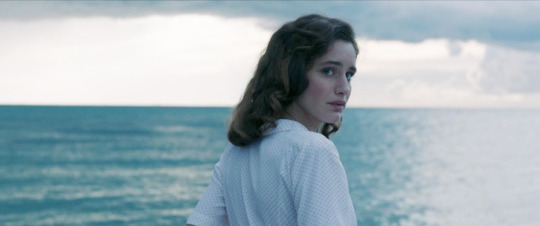
That “got nothing in my brain” Taylor Swift meme is about her. Also she called Milton ugly.
11. Florence Stalworthy-Pilaster (Die Pfeiler der Macht)
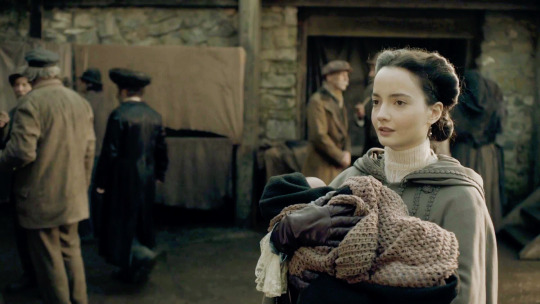
She is Edward’s young wife and a sweet, naive girl who became a pawn in Augusta and Mickey’s scheme. She didn’t do anything wrong and she didn’t deserve any of this shit.
10. Eva Kant (Diabolik)
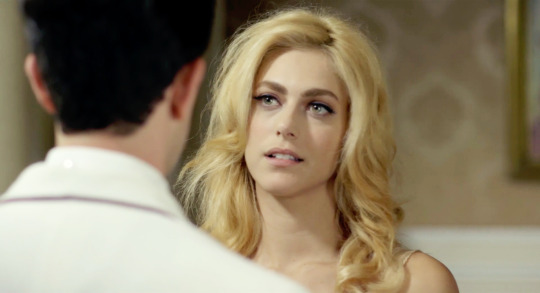
Seeing how much I hated this movie, I’m very surprised Eva is so high on the list. I attribute this to her basically carrying this whole so-called plot on her shoulders and actually doing stuff.
9. Enrica “Puny” Rignon (Fabrizio de André - Principe libero)
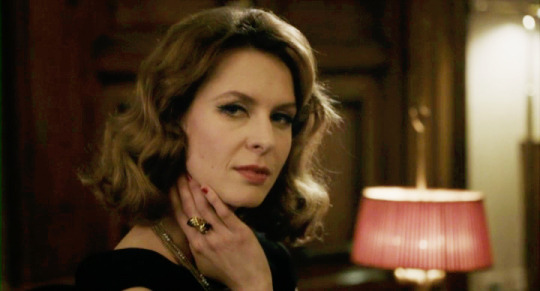
She’s positioned as the worse of Fabrizio’s two wives but really, what did she do wrong? Knew her worth and hated being cheated on? Honestly, Puny is perfect. It’s not her fault she wasn’t her slutty husband’s One True Love.
8. Lei (Ricordi?)
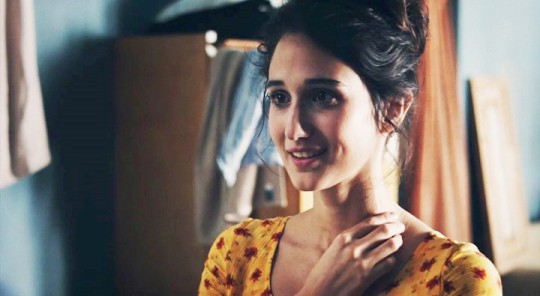
She’s sweet and cute and perfect and she’s played by Linda Caridi. What more do you need?
7. Mario (Il padre d’Italia)

Who else is enough of a saint to continue being a shoulder to cry on for their ex? The same person who is ready to sacrifice a lot of time and money to travel across the country to fetch that same ex and bring him back home after he got his heart broken, that’s who.
6. Margherita (Martin Eden)

Take Mario’s saintliness and apply it to a love interest of a character who is way more of a pill than Paolo. Margherita deserves to have streets and bridges named after her.
5. Viviana (Non essere cattivo)

There’s literally nothing wrong with Viviana. She’s wonderful: loving, supportive, caring, and resourceful. She deserved the world.
4. Maria (Maria di Nazaret)
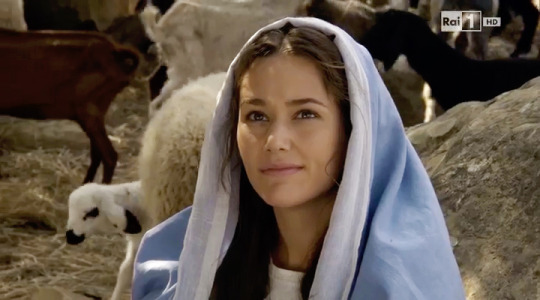
She’s THE Mary, Mother of Jesus, but her biggest achievement is not murdering her useless piece of shit husband. She deserved Oscar Isaac but instead she got one of the worst-written Luca characters in history.
3. Dori Ghezzi (Fabrizio de André - Principe libero)

As the actual One True Love of the main character, she gets to be quite high on the list, not to mention her patience, loyalty, bravery and literally her perfection.
2. Joe aka Yusuf Al-Kaysani (The Old Guard)
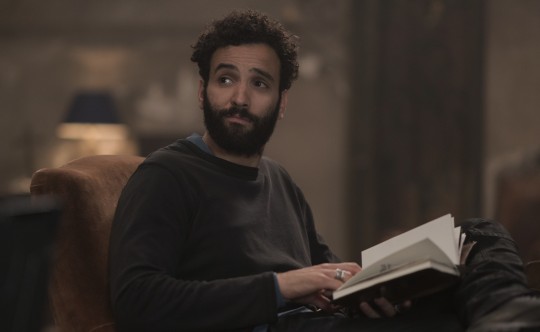
Whaat?! Joe isn’t number one?! But he’s literally perfect! Yes, I know. I told you I was biased.
1. Leonardo (Trust)
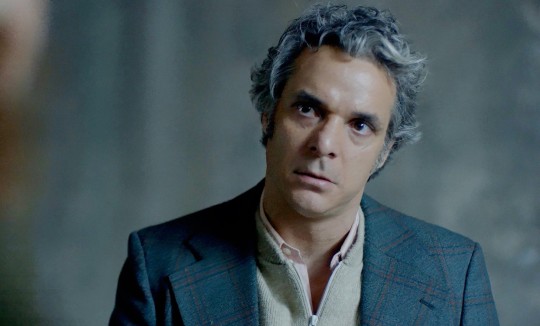
It’s not a movie, and Leonardo isn’t Primo’s real, canonical love interest? I don’t give a shit. He’s smart, resourceful, level-headed, loyal, and Primo totally wants to bang him. This is my list, and Leo is number one.
Do you disagree with my ranking? Please make your own list and send me the link or share your opinion in the notes. Don’t forget to like and subscribe!
62 notes
·
View notes
Photo





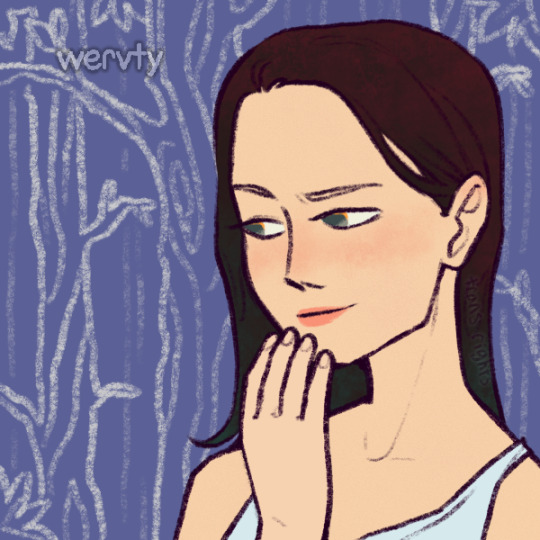
tagged by @socially-awkward-skeleton to do this fun lil picrew!
tagging: @natesofrellis, @thomrainer, @confidentandgood, @harmonyowl , @adelaidedrubman, @strafethesesinners, @aceghosts, @poetikat, @schoute, @strangefable, and anyone else wanting to make their ocs!
here we have:
SYBILLE LA ROUX (FC5) | verbalizing some feelings in the woods and hating ever second of it
JONAH SEED (FC5) | being a little shit at family game night and about to role snake eyes!
PAOLA ORSINI (UNCHARTED) | regretting letting rafe talk her into straightening her hair for the auction and distracting herself with work
ARI VASQUEZ-SULLIVAN (UNCHARTED) | finally cracking those strange glyphs that have been giving both elena and nate trouble
KATHERINE VOGEL (RDR2) | plucking up the courage to be the one to give arthur a flower this time, and
HENRIETTA GRAVES (RDR2) | in naught but her undies, sneaking out of micah’s tent and finding him strangely cute snoozing away like that
#my ocs#oc: deputy sybille la roux#oc: jonah seed#oc: paola orsini#oc: ari vasquez-sullivan#oc: katherine vogel#oc: henrietta 'etta' graves#paola looks so much like josephine montilyet in this picrew#a very very grumpy josie lmao#i am in love with how ari came out tho she looks so good here
28 notes
·
View notes
Text
most of the UK reviews i’ve read of martin eden have been a disappointment, tbh. i don’t know if this is because critics have been busy with cannes or because outlets here just don’t have the space, or because it’s kind of seen as old news. i have seen no real engagement with the politics or form beyond a couple of cursory lines, and it’s a shame because... i think it’s really rich wrt those elements?
so i am looking again at the (wonderful) review from film comment last year and it’s such a shame that it’s not available freely online. so i thought i’d post it here behind a cut. it’s long but worth it imo (and also engages really interestingly with marcello’s other films). it’s by phoebe chen.
COLLECTIVE CONSCIOUSNESS Jan 3, 2020 BY PHOEBE CHEN
EARLY IN JACK LONDON’S 1909 NOVEL MARTIN EDEN, there is a scattering of references to technical ephemera that the 20th century will promptly leave behind: “chromos and lithographs,” those early attempts at large-scale reproduction; “a vast camera obscura,” by then a centuries-old relic; a bullfight so fervid it’s like “gazing into a kinetoscope,” that proto-cinematic spectacle of cloistered motion. These objects now seem like archaic curios, not much more than the flotsam of culture from the moment it shifted gears to mass production. It’s a change in scale that also ensnares the novel’s title character, a hardy young sailor and autodidact-turned-writer-célèbre, famously an avatar of London’s own hollowing transmutation into a figure for mass consumption. But, lucky him—he remains eminent now on the other side of a century; chance still leaves a world of names and faces to gather dust. Easily the most arresting aspect of Pietro Marcello’s new adaptation is its spotlight on the peripheral: from start to end, London’s linear Künstlerroman is intercut with a dizzying range of archival footage, from a decaying nitrate strip of anarchist Errico Malatesta at a workers’ rally to home video–style super 16mm of kids jiving by an arcade game. In these ghostly interludes, Marcello reanimates the visual detritus of industrial production as a kind of archival unconscious.
This temporal remixing is central to Marcello’s work, mostly experimental documentaries that skew auto-ethnographic and use elusive, essayistic editing to constellate place and memory, but always with a clear eye to the present. Marcello’s first feature, Crossing the Line (2007), gathers footage of domestic migrant workers and the nocturnal trains that barrel them to jobs across the country, laying down a recurring fascination with infrastructure. By his second feature, The Mouth of the Wolf (2009), there is already the sense of an artist in riveting negotiation with the scope of his story and setting. Commissioned by a Jesuit foundation during Marcello’s yearlong residency in the port city of Genoa, the film ebbs between a city-symphonic array and a singular focus on the story of a trans sex worker and her formerly incarcerated lover, still together after 20-odd years and spells of separation. Their lives are bound up with a poetic figuration of the city’s making, from the mythic horizon of ancient travails, recalled in bluer-than-blue shots of the Ligurian Sea at dawn, to new-millennium enterprise in the docklands, filled with shipping crates and bulldozers busy with destruction.
Marcello brings a similar approach to Martin Eden, though its emphasis is inverted: it’s the individual narrative that telescopes a broader history of 20th-century Italy. In this pivotal move, Marcello and co-writer Maurizio Braucci shift London’s Oakland-set story to Naples, switching the cold expanse of the North Pacific for the Mediterranean and its well-traversed waters. The young century, too, is switched out for an indeterminate period with jumbled signifiers: initial clues point to a time just shy of World War II, though a television set in a working-class household soon suggests the late ’50s, and then a plastic helicopter figurine loosely yokes us to the ’70s. Even the score delights in anachronism, marked by a heavy synth bass that perforates the sacral reverb of a cappella and organ song, like a discotheque in a cathedral. And—why not?—’70s and ’80s Europop throwbacks lend archival sequences a further sense of epochal collapse. While Marcello worked with researcher Alessia Petitto for the film’s analog trove, much of its vintage stock is feigned by hand-tinting and distressing original 16mm footage. Sometimes a medium-change jolts with sudden incongruity, as in a cut to dockworkers filmed in black and white, their faces and hands painted in uncanny approximations of living complexions. Other transitions are so precisely matched to color and texture that they seem extensions of a dream.
Martin’s writer’s optimism is built on a faith in language as the site of communication and mutual recognition. So follows his tragedy.
Patchworked from the scraps of a long century, this composite view seems to bristle against a story of individual formation. It feels like a strange time for an artist’s coming-of-age tale adapted with such sincerity, especially when that central emphasis on becoming—and becoming a writer, no less—is upended by geopolitical and ecological hostility. At first, our young Martin strides on screen with all the endearing curiosity of an archetypal naïf, played by Luca Marinelli with a cannonballing force that still makes room for the gentler affects of embarrassment and first love. Like the novel, the film begins with a dockside rescue: early one morning, Martin saves a young aristocrat from a beating, for which he is rewarded with lunch at the family estate. On its storied grounds, Martin meets the stranger’s luminous sister, Elena Orsini (Jessica Cressy), a blonde-haloed and silk-bloused conduit for his twinned desires of knowledge and class transgression. In rooms of ornate stucco and gilded everything, the Orsinis parade their enthusiasm for education in a contrived show of open-mindedness, a familiar posture of well-meaning liberals who love to trumpet a certain model of education as global panacea. University-educated Elena can recite Baudelaire in French; Martin trips over simple conjugations in his mother tongue. “You need money to study,” he protests, after Elena prescribes him a back-to-school stint. “I’m sure that your family would not ignore such an important objective,” she insists (to an orphan, who first set sail at age 11).
Anyone who has ever been thrilled into critical pursuit by a single moment of understanding knows the first beat of this story. Bolting through book after book, Martin is fired by the ever-shifting measure of his knowledge. In these limitless stretches of facts to come, there’s the promised glow of sheer comprehension, the way it clarifies the world as it intoxicates: “All hidden things were laying their secrets bare. He was drunk with comprehension,” writes London. Marcello is just as attentive to how Martin understands, a process anchored to the past experiences of his working body. From his years of manual labor, he comes to knowledge in a distinctly embodied way, charming by being so literal. At lunch with the Orsinis, he offers a bread roll as a metaphor for education and gestures at the sauce on his plate as “poverty,” tearing off a piece of education and mopping up the remnants with relish. Later, in a letter to Elena, he recounts his adventures in literacy: “I note down new words, I turn them into my friends.” In these early moments, his expressions are as playful as they are trenchant, enlivened by newfound ways of articulating experience. His writer’s optimism is built on a faith in language as the site of communication and mutual recognition. So follows his tragedy.
One of Marcello’s major structural decisions admittedly makes for some final-act whiplash, when a cut elides the loaded years of Martin’s incremental success, stratospheric fame, and present fall into jaded torpor. By now, he is a bottle-blonde chain-smoker with his own palazzo and entourage, set to leave on a U.S. press tour even though he hasn’t written a thing in years. His ideas have been amplified to unprecedented reach by mass media, and his words circulate as abstract commodities for a vulturine audience. For all its emphasis on formation, Martin Eden is less a story of ebullient self-discovery than one of inhibiting self-consciousness. There is no real sense that Martin’s baseline character has changed, because it hasn’t. Even his now best-selling writing is the stuff of countless prior rejected manuscripts. From that first day at the Orsini estate, when his roughness sticks out to him as a fact, he learns about the gulf between a hardier self-image and the surface self that’s eyed by others.
WITH SUCH A DEEPLY INHABITED PERFORMANCE by Marinelli, it’s intuitive to read the film as a character study, but the lyrical interiority of London’s novel never feels like the point of Marcello’s adaptation. Archival clips—aged by time, or a colorist’s hand—often seem to illustrate episodes from Martin’s past, punctuating the visual specificity of individual memory: a tense encounter with his sister cuts to two children dancing with joyous frenzy; his failed grammar-school entrance exam finds its way to sepia-stained shots of a crippled, shoeless boy. These insertions are more affective echoes than literal ones, the store of a single life drawn from a pool of collective happening.
But, that catch: writing in the hopes of being read, as Martin does (as most do), means feeding some construct of a distinctive self. While the spotlight of celebrity singles out the destructive irony of Martin’s aggressive individualism, Marcello draws from Italy’s roiling history of anarchist and workerist movements to complicate the film’s political critique, taking an itinerant path through factions and waves from anarcho-communism in the early 1900s to the pro-strike years of autonomist Marxism in the late ’70s. In place of crystalline messaging is a structure that parallels Martin’s own desultory politics, traced in both film and novel through his commitment to liberal theorist Herbert Spencer. Early on, Martin has an epiphanic encounter with Spencer’s First Principles (a detail informed by London’s own discovery of the text as a teen), which lays out a systematic philosophy of natural laws, and offers evolution as a structuring principle for the universe—a “master-key,” London offers. Soon, Martin bellows diatribes shaped by Spencer’s more divisive, social Darwinist ideas of evolutionary justice, as though progress is only possible through cruel ambivalence. Late in the film, an image of a drunk and passed-out Martin cuts to yellowed footage of a young boy penciling his name—“Martin Eden”—over and over in an exercise book, a dream of becoming turned memory.
In Marcello’s previous feature, Lost and Beautiful (2015), memory is more explicitly staged as an attachment to landscape. Like Alice Rohrwacher’s Happy as Lazzaro, Lost and Beautiful plays as a pastoral elegy but lays out the bureaucratic inefficiency that hastens heritage loss through neglect. Rolling fields make occasional appearances in Martin Eden, but its Neapolitan surroundings evoke a different history. Far from the two oceans that inspired a North American tradition of maritime literature, the Mediterranean guards its own idiosyncrasies of promise and catastrophe. Of the Sea’s fraught function as a regional crossroads, Marcello has noted, in The Mouth of the Wolf, a braiding of fate and agency: “They are men who transmigrate,” the opening voiceover intones. “We don’t know their stories. We know they chose, found this place, not others.” Mare Nostrum—“Our Sea”—is the Roman epithet for the Mediterranean, a possessive projection that abides in current vernacular. Like so many cities that cup the sea, Naples is a site of immigrant crossing, a fact slyly addressed in Martin Eden with a fleeting long shot of black workers barreling hay in a field of slanted sun, and, at the end, a group of immigrants sitting on a beach at dusk. Brief, but enough to mark the changing conditions of a new century.
Not much is really new, however: not the perils of migration, nor the proselytizing individualists, nor the media circus, nor the classist distortions of taste, nor, blessedly, the kind of learning for learning’s sake that stokes and sustains an interest in the world. Toward the end of the film, there is a shot of our tired once-hero, slumped in the back seat of a car, that cuts to sepia stock of children laughing and running to reach the camera-as-car-window, as if peering through glass and time. It recalls a scene from Wim Wenders’s Wings of Desire, which leaps backward through a similar gaze, when the weary angel Cassiel looks out of a car window at the vista of ’80s Berlin and sees, instead, grainy footage of postwar streets strewn with rubble in fresh ruin. Where human perception is shackled to linearity, these wool-coated and scarfed seraphs—a materialization of Walter Benjamin’s “angel of history”—see all of time in a simultaneous sweep, as they wander Berlin with their palliative touch. Marcello’s Martin Eden mosaics a view less pointedly omniscient, but just as filled with a humanist commitment to the turning world, even as Martin slides into disillusion. All its faces plucked from history remind me of a line from a Pasolini poem: “Everything on that street / was human, and the people all clung / to it tightly.”
Phoebe Chen is a writer and graduate student living in New York.
13 notes
·
View notes
Photo









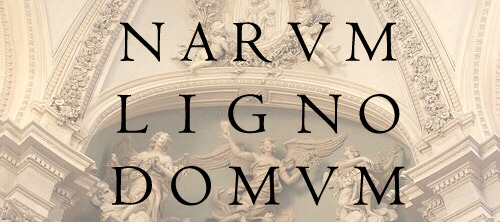
The Assistant: an addition
This post represents the current members of one of the Richest and Oldest French Pureblood family Valois. It took me two weeks to find the right kind of images and people (most of whom I don’t really know) to represent what was the perfect image of the Valois family
The Image at the very top is the family crest of the Valois, and in real life, it is actually the Crest of Valois, found on the tomb of Charles the Bold, the original founder of the Valois line.
The next one, “Tres haut, tres excellent, tres magnanime et tres puissant” is the official writing on the tapestry of the allied Valois-Bourbon line. It means “most high, most excellent, most magnanimous and most powerful”, it is the praise of the family, and only the High Nobles have.
Hrothgar Bartholomew Valois: I have chose an edited version of Timothy Omundson on this one. Hrothgar has dark eyes, Timothy Omundson had blue. In the panel next to him, is a Crown. The name ‘Hrothgar’ has been taken from the Angle Saxon Epic Beowulf, Where Hrothgar is a Danish King. The exact meaning is not known, but Hrothgar means “Spear”. His middle name “Bartholomew” means “Pirate King”. Pirates don’t care for morality or codes, they just plunder and conquer. I have placed the names of Legitimate and Non-Legitimate Kings side by side to highlight Hrothgar’s diplomatic nature that hold both ruthlessness and shrewdness together.
Marguerite Lucrezia Valois: “Marguerite” is the French version of “Margaret”. This figure, “Marguerite” is inspired from “Marguerite de Valois”, one of the earliest Queen Consort of the Valois dynasty. The Name “Marguerite” means “pearls”, a very sought after object by European nobles, and an important symbol of Virginity and Purity, often worn by Elizabeth I the Virgin Queen of England. “Lucrezia” is an Italian name that means “wealthy”. Marguerite is from the family of Orleans, which in real life assumed the July Monarchy in France. So her name in total means “Wealthy in Pearls” or “Wealthy in Purity”. She is a reddish blond haired woman, with hazel eyes
Menelaus Cepheus Valois: the Eldest Valois son has the name of Mythical King of Troy, Menelaus. Menelaus means “Strength of the People”, the eldest Valois son is also named after a gracious King, like his father and his middle name “Cepheus” is a name of a Constellation, which also means “King”. I have picked Gabriel Aubry for this role. he has a darker blond hair.
Svetlana Arkyadevna Valois: The Elder Daughter-in-law of the Valois hails from the Russian nobility, Gruzinsky. In real life, the Gruzinsky are Georgian Nobility and Subject of Russia. Her name “Svetlana” means “Luminous” or “Light” in Russian, and I have been inspired from the Russian Ballerina ‘Svetlana Zakharova’. Her middle name “Arkyadevna” means “daughter of Arkady”. It is a common tradition in Russia that a person’s middle name suggests whose son or daughter they are. Her middle name was inspired from Tolstoy’s heroine, ‘Anna Arkyadevna Karenina’. “Arkady” usually means “someone from Arcadia”. So the whole of her name means “Arcadian Light”, another Grecian inspired name, coinciding with her husband Menelaus. She has red hair and blue eyes.
Magnus Cetus Valois: The Younger son of the Valois is named after the famous “Whale” constellation. ‘Magnus’ is Latin for “Great”. The literal translation of “Cetus” is Whale. It was coincidental that during both of the son’s birth the Constellations Cephus and Cetus were in the front line, so it was decided that their middle names would be after these stars. Magnus’ name keeps up with the mother. Whale is an oceanic creature and pearl is found in the ocean.
Elena Vittoria Valois: Magus’ wife, Elena Vittoria is from the Italian house of Orsini. In real life, the Orsini family existed in medieval times and Renaissance and produced a number of Popes to give to the Roman Empire. Therefor this Orsini too, is of old origin. ‘Elena’ means “blessed”, a common Italian name, and “Vittoria”, another common Italian name (Italian Version of ‘Victoria’) means “Victory” or the Goddess of Victory herself. Her name therefore means “blessed Victory”. She has platinum blonde hair, gray eyes and neurotic disposition. She is currently with child.
Maxine Adrienne Odessa Valois: The youngest child of Hrothgar Valois who possesses her father’s looks. She has three names, unlike her brothers. “Maxine”, a name that was chosen by her father (all of the sons were named by their mother) that means “Greatest” in Latin; “Adrienne” a name that means “dark”, was given because she was the first child of Hrothgar who was born with the same black hair like his. Her last name ‘Odessa’ was given in a whim, a name that is the female version of “Odysseus”, the famous Greek Traveler. Later in life, she traveled around the world, wandering about, in search of knowledge. I have chosen an edited version of Vittoria Ceretti, an Italian model. she came closest to my idea. I am aware that her hair does not totally match Maxine’s but it is to be remembered, Maxine’s hair is not curly, it is wavy. The roots are straight, but the length is not.
I have chosen to edit them B/W and not in colour or in that fashion of 1920′s to indicate how they are trapped in a mental state of 19th century and aristocratic supremacy. Maxine is in colour to depict how different she is from them.
I have put many quotes here, these are to showcase the values of the family, and to use them as aesthetics. These are the vows of the Valois Family
“bono malum superate, capax infiniti, faciam quodlibet quod necesse est “ : overcome evil with good, holding the infinite, I’ll do whatever it takes.
“Compos mentis, concilio et labore, coniunctis viribus, Resurgam” : in control of the mind, by wisdom and effort, with connected strength, I shall rise.
“Deus et mon droit, et it doit etre pre avec tous les mouyens“: The God and My Right, I will take it by any means.
The last quote is in French, and the part “Deus et Mon droit” is the true motto of the Valois. However, I have put this in French to echo the mindset and realness of Maxine.
Narum Ligno Domum: This is the motto of the Wizarding Pureblood family of the Valois. The quote means “the backbone of the dynasty is made of wood”. It is said that There were not one, but two men that established the Valois family. The Muggle one was established by Charles de Capet, Son of King Philip III and Isabella of Aragon, and his unknown brother Jean-Baptiste de Capet. In the medieval age, when Jean-Baptiste was born with magical blood his Royal parents kept him a secret. When Charles found the Valois house in 1284, Jean-Baptiste, now educated in Magical Arts, threatened to end him. To avoid conflict, bloodshed and exposition, both Charles and Jean-Baptiste signed a treaty that there will not be one, but two Valois branches, one non-wizard another wizard, and both will be bound to each other. The pact consisted-
1. If a non-magic child in born with magical blood, he/she would be the responsibility of the Wizarding Valois family and Vice Versa.
2. The Non-Wizard will protect the secrecy and existence of the Wizarding Valois family.
3. In return, the Wizarding Valois family will protect the Valois-Capet Dynasty with magical means. This condition became null and void when the Muggle Valois family went extinct in 1589.
The motto literally meant that the Muggle Valois Dynasty is and has been protected by the wood (wand) of the Wizarding Valois.
#newt xoc#pureblood family#french nobility#the assistant#newt x reader#Theseus x oc#theseus x reader#harry potter headcanon
34 notes
·
View notes
Text
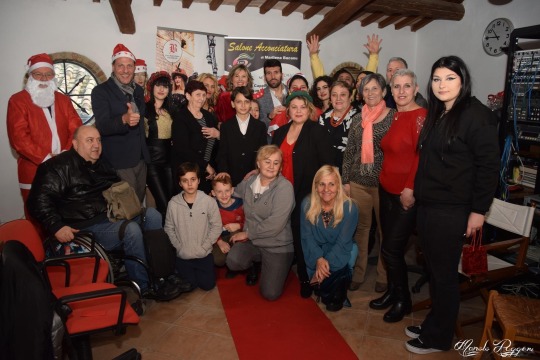
Christmas Fashion by E&R 2022 terza edizione nel borgo medievale della Sabina.

Il 27 dicembre 2022 si è svolto a San Polo di Tarano provincia Rieti la terza edizione Christmas Fashion di Elena Rodica Rotaru. San Polo è un borgo medievale piccolissimo che sorge su una collinetta allungata che di certo ne suggerì la costruzione fortificata. Il castello di Santo Polo, di cui oggi sono intuibili le forme originarie nelle strutture di case e costruzioni come la Torre Civica, compare per la prima volta nella documentazione farfense nel gennaio del 1102. Nel territorio di Santo Polo aveva consistenti interessi il monastero di S. Andrea in Flumine che vi possedeva diversi beni fondiari. Nel 1368 il castello, insieme ad altri, fu dato come feudo da Urbano V a Francesco e Buccio Orsini. Rimasto tra alterne vicissitudini, nel patrimonio degli Orsini, fu espropriato nel 1604 alla morte di Enrico Orsini, marchese di Stimigliano.
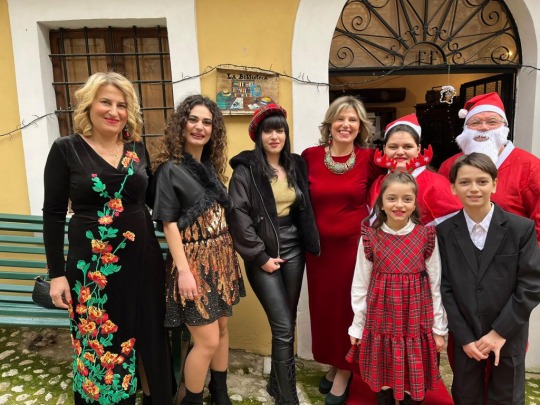
Christmas Fashion by E&R terza edizione è stato organizzato di Elena Rodica Rotaru e l’associazione Lika Eventi in collaborazione con Pandataria Film e Hair Beauty Salon di Marilena Bãcanu. L’evento è dedicato a tutti i bambini e alcuni amici che collaboro tutto l’anno a eventi di moda ,culturali e sociali organizzare di Elena.
Non manca mai Babbo Natale un momento speciale per tutti ma soprattutto per gli bambini .

Tutti gli ospiti sono stati accolti con grande affetto medievale.La prima tappa della visita in borgo è stata nella cantina del rum dove hanno assaggiato vari piatti tradizionali della Romania e dell'Italia cucinati da presidente della associazione Lika Eventi Elena, insieme con Constanta Ardeleanu e Gabriela Vulpe arrivate della Calabria (Rosarno) speciale per feste natalizie e capodanno.
Subito dopo pranzo tutti sono saliti alla biblioteca di Salvatore Braca Pandataria Film dove il conduttore, attore e cantante Jano Di Gennaro ha accolto gli ospiti con una bellissima canzone insieme a Babbo Natale che ha dato il via al Christmas Fashion by E&R party. Ma prima di tutto Babbo Natale insieme alla sua assistente Maria Popa ha fatto regali a tutti presenti ognuno di loro ha trovato una lettera divertente. Dopo alcuni festeggiamenti, è iniziata la prima sfilata di Elena Rodica Rotaru. I modelli presenti erano Gabriele Popa, Angela Popa, Gabriela Vulpe, Aurora Cigna ( fascia Pandataria Film) e Giulia Ruggeri (vincitrice del concorso nazionale Una ragazza, un ragazzo e una bambina per lo spettacolo di Massimo Meschino che era presente anche all'evento.
Divertimento e la sfilata ha continuato il momento più culturale è stato la presentazione di libro Chic -Il Mondo Della Moda -di Francesca Napolitano Edizione SG Book Publisher . In questo libro ci sono anche le tuo protagonista stilista internazionale Elena Rodica Rotaru e la sua modella Giulia Ruggeri che indossando un vestito di seta con motivi grechi per la realizzazione di un abito con una storia volta all’oriente .Questo abito è stato realizzato nel 2020 per l’evento Covi Free della Ventotene fashion week by E&R l’abito dei ricordi di una trascorsa pandemia mondiale .Giulia Style è dedicato alla mia modella Giulia Ruggeri .
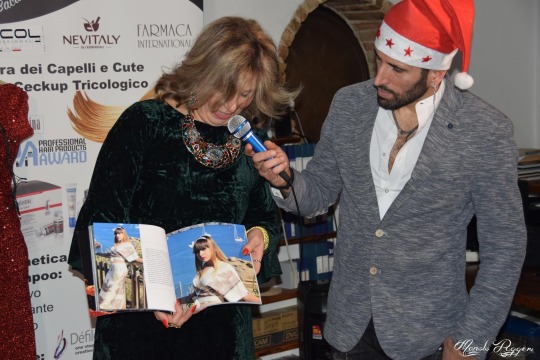
Ma più emozionante della serata è stato il momento quando il giornalista di PaeseRoma dott. Michelangelo Letizia ha nominato e d’atto un attestato di Merito a Elena Rodica Rotaru.


Orgogliosi di aver consegnato a Elena Rodica Rotaru il riconoscimento di Feder Mestieri 2022. L'artista, costumista stilista, fashion blogger, creatrice e presidente di importanti eventi, è stata premiata durante l'evento Christmas Fashion By E&R da Michelangelo Letizia.
ELENA è nata in Romania, ma ormai da molti anni vive, lavora in Italia e ama stare in italia dove è molto impegnata in eventi internazionali tra Roma e Milano nel mondo della moda.La passione per la moda inizia molto presto. A circa 3 anni Elena già si divertiva a giocare con i ritagli di tessuti avanzati dalle creazioni della madre e del nonno. Quella stessa passione è ancora forte in lei ed è il motore di ogni attività e progetto che la vede protagonista.
Tutti i miei premi certificati o altri riconoscimenti che ricevo durante il mio viaggio su questa terra vorrei dedicarli a una persona speciale della mia vita a mia mamma . Vorrei ringraziare tutti coloro che hanno partecipato e collaborato con me.
Pandataria Film di Salvatore e Antonio Braca,hair beauty Salon di Marilena Bãcanu, Jano Di Gennaro ,fotografi Manolo Ruggeri e Mario Buonanno, Aura Ruggeri filmmeker, PaeseRoma e Feder Mestiere di Michelangelo Letizia ,Jano Di Gennaro ,Ardeleanu Constanta (mia mamma)
Massimo Meschino, Camelia Birlan assistente manager E&R Rotaru Privè Fashion , Gabriela Vulpe, Angela,Maria e Gabriele Popa, Aurora Cigna,Giulia Ruggeri,Carla Ruggieri (Sarteavventura) ,Iliana Constantinescu ,babbo natale FELICINGELI NELLO, dj Dinca Valeriu
Ciao tanti altri presenti nel mio piccolo borgo medievale.



Articolo di @likarotarublogger @elenarodicarotaru-blog
#fashionbloggerstylebloggerofinstagram♥️♥️♥️♥️#byelenarotaru#instagrambloggers❤️#photography📷📸#ınstagood#christmas#fashion blogger#articolo#fashiondesigner#modaitaliana🇮🇹🇮🇹#romania#fashion#borgo
0 notes
Text
martin eden
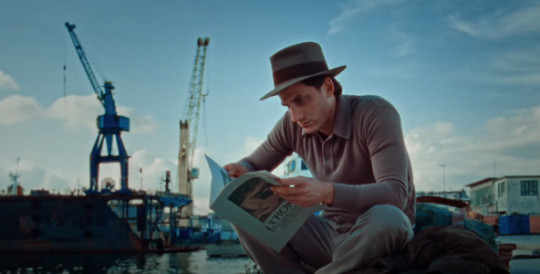
“I decided that I want to be like you. Speak like you, think like you.”
Setelah sekian laut diarungi, sekian pekerjaan kasar dilakoni, Martin Eden sampai pada satu titik pertemuan nasib yang membuatnya bercita-cita jadi seorang penulis. Bahkan ketika banyak cerita pendeknya diabaikan penerbit, keinginannya masih tetap teguh.
Titik temu nasibnya itu terjadi pada suatu pagi ketika Martin Eden (Luca Marinelli) terbangun di geladak kapal gara-gara suara ribut-ribut tak jauh di pinggir dermaga. Ia sehabis memadu kasih dengan seorang gadis lokal yang mengajaknya berdansa di sebuah bar. Gadis itu menghilang begitu Martin bangun, dan bersamaan dengan keributan dua orang yang sedang bertengkar itu ia pun merasa harus melibatkan diri ke sana demi melampiaskan kekesalannya ditinggal seorang diri.
Pertengkaran itu sebenarnya berat sebelah, dan lebih mirip seperti kemurkaan seseorang yang baru kemalingan lalu menghakimi si pelaku tanpa jeda. Martin tidak berusaha melerai tapi meminta si pemukul untuk menyudahi aksinya karena suara marah-marahnya itu sangat mengganggu. Namun karena tidak digubris Martin pun menghampiri si pemukul dengan sangat emosi lalu melayangkan bogem mentah ke mukanya, dan dengan serta-merta membebaskan si pesakitan dari persekusi.
Beruntung bagi Martin karena orang yang diselamatkannya itu adalah anak keluarga kaya di Naples. Sebagai rasa terima kasih ia pun diundang datang ke rumah keluarganya yang megah─keluarga Orsini namanya─untuk makan siang bersama.
Di depan gerbang rumah tersebut Martin sempat ragu-ragu saat hendak masuk ke dalam. Belum pernah selama hidupnya ia masuk ke rumah orang kaya dan untuk sesaat ia merasa seolah-olah sedang berhadapan dengan pulau asing yang tak mungkin ia jamah. Begitu berada di dalam, kekagumannya seakan tak terbendung dan mewujud sebagai rasa penasaran yang polos. Dinaungi arsitektur bangunan bergaya kastil, dengan lukisan-lukisan barang antik, dan furnitur estetis yang mendekorasi ruangan, ia mencoba bersikap tenang sambil tetap menganalisis sekitarnya.
Ia tertarik dengan sebuah lukisan yang terpajang di sebuah ruangan perpustakaan pribadi karena ia bisa melihatnya langsung dari jarak dekat dan menangkap detail goresan kuasnya yang serupa bercak. Ia juga tertarik dengan buku puisi Charles Baudelaire yang terserak di sana dan mengintip beberapa bait yang menurutnya luar biasa. Lalu di atas itu semua, ia tertarik dengan seorang gadis yang datang menyambutnya di sana, putri sulung keluarga Orsini, Elena (Jessica Cressy), yang secara singkat mengajarinya cara melafalkan nama Baudelaire dalam aksen Prancis dengan benar.
Itu sebabnya sepulang dari rumah Orsini Martin melangkah pulang ke pelabuhan dengan wajah berseri-seri, bahkan temannya yang paling kasar dan tidak peka sekalipun bisa menebak dengan tepat bahwa perubahan mood Martin yang langka itu pasti gara-gara jatuh cinta.
Kapal Penjelajah Dunia Baru Bernama Sastra
Setelah pertemuan di rumah keluarga Orsini itu Martin memborong banyak buku dari toko buku bekas pinggiran kota. Setiap malam ia melahap setiap halaman dengan penuh antusias seolah-olah ia sedang mempelajari peta pulau harta karun (“I read like an insatiable fisherman”). Ia tenggelam dalam setiap genre yang ia temukan; puisi, novel, sejarah, bahkan filsafat tak ketinggalan ia baca. Bukan hanya membaca tapi sekaligus juga mempelajari setiap ilmu yang melebarkan pemahamannya ke zona-zona baru yang mengisi kepala dan hatinya dengan banyak sesuatu. Setiap buku menghasilkan pencerahan dan Martin jelas merasakan kesenangan yang tak tergantikan oleh petualangan fisik.
Seiring dengan banyaknya asupan bacaan yang masuk ke kepalanya, maka mumcul pulalah keinginan Martin untuk mulai menulis. Ia tertarik dengan fiksi. Ada banyak pengalaman hidup yang bisa ia puitisasikan atau tumpahkan ke dalam cerita pendek. Keinginannya semakin menggebu-gebu ketika ia tahu ada banyak majalah yang menawarkan honor besar untuk setiap cerita pendek yang dimuat. Maka berikutnya, ketika ia kembali menemui Elena di pekarangan rumahnya yang asri, dengan penuh percaya diri ia menyampaikan cita-cita besarnya untuk menjadi seorang penulis.
Martin: “During these months I’ve reflected on my situation. And I felt a creative spirit burning inside, that urged me to turn myself into one of the eyes through which the world sees. I want to become a writer. This I resolved to do.”
Elena: “You see, I don’t know much about it. But I believe that the profession of writing is just like any other. And just like all the others it has its requirements.”
Martin: “So you disapprove of my decision?”
Elena: “It’s not that. I only fear that your enthusiasm could make you lose sight of the problems involved with the enterprise.”
Martin: “I don’t underestimate such problems. But let me ask you this: what if I were particularly gifted in writing?”
Elena: “But however talented, I’ve never heard of someone learning a trade without an apprenticeship.”
Martin: “Tell me what you advise.”
Elena: “You need a complete education, Mr. Eden. Even if you don’t become a writer.”
Elena memang menanggapi keinginan Martin itu dengan sedikit keraguan. Sebagai perempuan kelas atas tentunya ia punya kacamata berbeda dalam melihat Martin. Bagi seseorang yang mendapatkan akses pendidikan penuh sepanjang hidupnya berikut banyaknya privilese yang menyertai status sosialnya, tidak salah kalau Elena menilai tekad Martin sebagai lompatan jauh yang melewati banyak celah dalam hidupnya.
Namun Martin terlahir sebagai seorang petualang. Dari awal ia sudah terbiasa dengan kerja keras dan melewati jalur yang tidak gampang demi mencapai sebuah tujuan. Walaupun terhitung masih baru belajar, menjadi penulis adalah pekerjaan yang siap ia tempuh dengan semangat kegigihan yang sama yang selalu terpatri dalam setiap hembusan napasnya. Martin pun bersungguh-sungguh menjalani niatnya dengan terus menulis cerita, terus mengirimkannya ke majalah-majalah, meskipun ia juga selalu mendapat surat-surat penolakan yang mengembalikan naskah-naskahnya.
Bagi Martin, menulis bukan hanya sebuah kesenangan baru, tapi juga jalur harapan lain yang ia percaya bisa mengubah nasib hidupnya. Di balik itu, ia pun melihat kalau jalur tersebut adalah satu-satunya jalur yang bisa membawanya mengimbangi status sosial Elena, sebagai seorang intelek, sebagai seorang yang berbudaya, yang kemudian akan menyempurnakan perasaan cintanya.
Perjuangan Gigih untuk Naik Kelas
Martin sempat mengungkapkan kepada Elena tentang keinginannya untuk bisa jadi seperti Elena, berpikir dan berbicara seperti Elana. Sejatinya bukan hanya sastra yang telah menyilaukan mata Martin, tapi juga kehidupan kelas atas yang sarat akan akses terhadap budaya, seni, dan pengetahuan, yang begitu melenakan hatinya. Ia ingin mengubah nasibnya, ingin naik kelas dari kelas pekerja ke kelas intelektual, dan ia merasa sanggup mewujudkannya karena telah tercerahkan oleh gagasan-gagasan besar yang ia baca.
Perjalanannya “hijrah” tentu tidak mulus. Ia tetap harus menjalani kerja-kerja sambilan demi menghidupi kesehariannya dengan menjadi kuli kasar atau pergi melaut. Ia tetap harus berkubang dulu dalam peluh keringat, bara api, debu, dan asap untuk bisa memandu langkahnya pelan-pelan menaiki tangga sosial. Bahkan ia juga harus mendapat hinaan dan olok-olok dari sesamanya terkait “keinginan mulianya” menjadi seorang penulis (“Do you even know how to open a book?”). Apalagi karena tulisan-tulisannya masih belum bisa menghasilkan apa-apa, belum ada majalah yang mau menerima cerita pendeknya sehingga Martin lebih banyak mengoleksi surat penolakan daripada cek pembayaran.
Penolakan-penolakan tersebut tentunya sempat membuat Martin patah arang. Ia mendapat masukan dari kakaknya yang mengatakan kalau tulisan Martin terlalu gelap dan menyedihkan. Elena pun memberikan masukan yang kurang-lebih sama. Sayangnya masukan semacam itu memang agak sulit diterima Martin. Ia tidak bisa dan tidak mau menuliskan kisah-kisah yang bahagia, romantis, atau optimistis, karena semua itu bukanlah bagian dari realita yang ia rasakan (“You’d like me simply to erase anything that’s ugly and give hope. Tell it to the wretched of the earth”). Ia tidak menikmati film ceria yang ditontonnya di bioskop bersama Elena, dan ketika Elena mempermasalahkan hal tersebut ia pun dengan geram menyeret gadis itu menuju ke lingkungan tempatnya tinggal yang kumuh, kasar, dan kampungan untuk menegaskan argumennya. Dunia yang dikenalnya adalah dunia yang tidak bisa diromantisasi, bukan dunia yang penuh pengharapan, tapi dunia perjuangan tempat berkelindannya kekurangan dan keburukan yang harus digeluti tanpa henti oleh para manusianya.
Bagi Elena, fiksi dan puisi adalah medium yang memotret kehidupan dalam segala pernak-pernik keindahan yang membuai perasaan. Bagi Martin, fiksi dan puisi adalah medium yang memotret realita dalam kegamblangannya yang selama ini selalu ditutup-tutupi. Keduanya sama-sama memperlakukan karya sastra sebagai wahana eskapisme, bedanya, terikat dengan kecenderungan kelas, Elena menggunakannya sebagai teropong untuk menikmati pemandangan sedangkan Martin memperlakukannya sebagai mikfrofon untuk menyuarakan keresahannya.
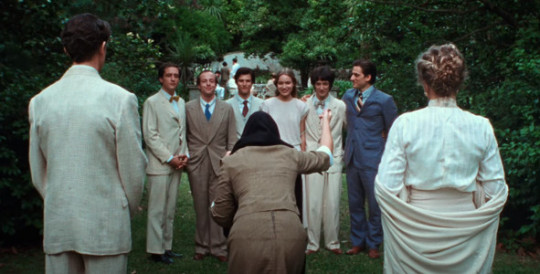
Namun, tentunya tidak mudah suara-suara itu diterima oleh publik. Sama halnya tidak mudah bagi Martin untuk meninggalkan teritori hidupya sebagai kelas pekerja, terlebih lagi, tidak mudah baginya untuk masuk ke dalam lingkungan kelas atas─bahkan ketika cintanya sudah diterima oleh Elena sekalipun. Ada sekat-sekat tak terlihat yang dibentangkan di hadapannya lewat pandangan-pandangan sinis, atau sindiran-sindiran halus, sampai ke gestur penolakan gamblang yang ditunjukkan oleh kalangan elit kepadanya. Latar belakangnya sebagai pelaut berikut tanda-tanda fisiologis warga kelas pekerja yang melekat pada diri Martin tidak bisa begitu saja dikesampingkan sebagai tanda pembeda kedudukan sosial. Apalagi keluarga Orsini termasuk sangat memuja pendidikan─sebuah fasilitas yang tentunya terlampau mewah untuk digapai Martin yang harus putus sekolah di usia 11─sehingga posisi Martin sebagai “pelajar otodidak” tentu tidak memenuhi standar kelayakan.
Perjuangan Martin untuk naik kelas juga terlihat dari caranya melepaskan diri dari isu yang dihadapi kaum kelas pekerja di Naples. Di sana para buruh, pelaut, kuli, dsb. sedang gandrung menyuarakan sosialisme sebagai ideologi yang dianggap bakal membebaskan mereka dari cengkeraman para bos kapitalis. Setiap hari orang-orang bergantian berdiri di atas mimbar lalu lantang menyuarakan ide-ide sosialisme kepada massa yang kemudian merangkulnya sebagai kunci pembebasan mereka dari buruknya kondisi kehidupan. Mereka berteriak, bertepuk tangan, bersorak menyambut gagasan utopis tersebut dan menghardik, menghina, serta melempari orang-orang yang coba menolaknya. Bagi mereka, siapa pun yang menolak prinsip kesamarataan adalah antek-antek industrialis yang gemar menguras habis hak-hak mereka.
Sementara Martin berdiri di sisi yang lain. Setelah tercerahkan oleh buku First Principles karya Herbert Spencer, Martin dengan percaya dirinya mengambil posisi sebagai figur intelektual yang coba meluruskan pemahaman rekan-rekannya itu tentang sosialisme. Ia menolak sosialisme bukan karena ia seorang industrialis atau kapitalis, tapi ia menolaknya karena sosialisme bukan kunci yang akan membebaskan para kaum pekerja dari konsep perbudakan itu sendiri. Baginya, perbudakan akan terus terjadi selama seseorang tidak mampu membebaskan dirinya dari kelompok massa lalu memupuk kekuatan menjadi individu yang lebih berdikari.
Martin: “Man has always had a master. And this master is either nature or another man. That’s what I see all around me: slaves. Slaves for hundreds and thousands of years. Children of slaves, grandchildren of slaves, descendants of slaves, who have never worked without a master. Can you deny it? It’s the law of evolution: healthier, stronger individuals, better organized and possessing power and slaves, control the weaker ones. You dream of a society in which this law is abolished and where individuals are emancipated by the State. But how is it possible to abolish a natural law with a moral law? The aims are right: social justice, freedom. But to whom are they applied? To society in general. And individuals? What role do they have in your new society? You can’t pay attention only to the collective. So, as soon as a society of slaves starts to organize itself, without any respect for the individuals that compose it, so its decline begins. The strongest among them will be their new masters. But this time they’ll do it in secret through cunning scheming, flattery, coaxing, and lies, and worse than what your bosses do to you today. No society that ignores the law of the evolution can last. Or have you discovered another law of human evolution?”
Bagi Martin, pembebasan diri tentunya dimulai dari individunya sendiri. Yang terpenting adalah kesadaran akan kekuatan dan keistimewaan diri sehingga seseorang tidak perlu lagi selalu terikat nasibnya kepada suatu kelompok. Bukan kepada bos, presiden, atau pemimpin seseorang harus menggantungkan nasibnya, akan tetapi kepada dirinya sendiri. Dan Martin bisa mengatakan demikian karena ia telah sedemikian terpapar oleh dunia literasi. Bacaan telah terbukti membukakan pikirannya sementara menulis telah memberinya kebebasan untuk menjadi diri sendiri.
Sudah pasti gagasan radikal Martin itu ditolak mentah-mentah oleh kaumnya. Ia diminta turun dari mimbar sambil dihujani beberapa pukulan kesal. Dengan begitu ia menerima dua penolakan dari dua kelas sosial yang berbeda, kelas atas dan kelas pekerja, dan ketidaksesuaian itulah yang kemudian mencuat sebagai perjuangan sesungguhnya dari seorang Martin Eden.
Penemuan Jati Diri Sebagai Perang Sepanjang Hayat
Ketika pertama kali menginjakkan kakinya di rumah keluarga Orsini lalu Martin tertarik menelaah sebuah objek di lukisan yang terpajang, ia kemudian menyampaikan kepada Elena impresi yang dirasakannya: “From a distance it’s beautiful. But close-up you only see stains.”
Terlepas disadari atau tidak oleh Martin, kalimat tersebut ternyata sangat kuat mewakili alur kehidupannya yang terikat oleh harapan-harapan semu. Keinginannya untuk menjadi orang yang “berbudaya” seperti Elena telah membutakan matanya dari identitas dirinya sendiri dan bahkan menjadikannya sosok yang angkuh. Elena yang awalnya dilihat sebagai wujud cinta yang sempurna itu perlahan-lahan juga meninggalkan Martin karena karier penulisnya mentok. Segala yang awalnya terlihat indah di dalam benak Martin mulai menunjukkan beragam celanya secara lebih dekat lagi.
Setiap penemuan jati diri yang dialami Martin tidak bisa dipungkiri membawanya ke arena yang lebih besar untuk melawan dunia. Bahkan ketika akhirnya sebuah belokan nasib berhasil mengangkatnya jadi penulis novel sukses yang tinggal di dalam rumah besar, Martin masih belum mencapai ketenangan batin sebab ia dihadapkan kepada media massa dan kritikus yang kerap melancarkan serangan kritik. Ia tidak menikmati hidup barunya sebagai “selebritas” yang diharuskan menjalani konferensi pers dan tur buku sampai ke luar negeri.
Satu hal yang paling membuatnya kosong adalah cinta. Martin menikahi Margherita, perempuan yang dulu menjalin cinta satu malam dengannya di geladak kapal, perempuan yang dulu sempat ia gunjingkan kepada Elena sebagai perempuan udik (“I’m sure if she spoke to you, you’d hardly understand her”), tetapi ia merasa pasangannya itu tak bisa cukup mengimbangi pemikirannya sehingga tak ada percikan yang menarik dalam rumah tangganya.
Elena juga sempat mendatangi Martin dan menyatakan keinginannya untuk menyemikan cinta mereka kembali. Martin menyambut perempuan pujaannya itu tapi kemudian ia berbalik melawannya karena merasa Elena hanya mau menerima dirinya setelah sukses dan kaya raya saja. Martin bahkan geram dengan pengakuan bahwa ibu kandung Elena, yang dulu tidak pernah menerima Martin sebagai kekasih anaknya, kali ini mendukung anaknya agar balik ke pelukan Martin. Dengan sangat emosional Martin mengusir Elena keluar dari istananya, berkebalikan dengan Elena yang dulu menyambut Martin ke dalam rumah mewahnya.
Di atas garis pertahanannya yang terakhir, agaknya Martin di samping ada banyak cara untuk menemukan diri yang baru, ada banyak pula cara yang dimiliki dunia untuk melawannya. Tidak ada tempat, posisi, atau kelas yang bisa menjamin terwujudnya cita-cita ideal seorang anak manusia karena dunia selalu menjawab dengan hal yang jauh lebih besar lagi daripada sekadar imajinasi individu. Keinginan arogan menaklukkan dunia, seperti yang banyak menjangkiti pikiran ambisius manusia “tercerahkan”, tidak pernah cukup kuat mengendalikan gerak dunia yang punya urgensi kosmiknya tersendiri. Ketidakpuasan dan kekosongan Martin dengan buruk menyulap perspektifnya terhadap segala perjuangan dan pencapaian itu sebagai kegagalan. Hidupnya kemudian jadi ironi besar yang mana setelah Martin mendapat apa yang diinginkan, ia malah ingin kembali ke masa sebelum semuanya berubah.
Martin: “So the world is stronger than me. Against its power I have nothing but myself, which, in any case, is quite something. For as long as I don’t let myself get overwhelmed, I am also a force. And my force is fearsome as long as I have the power of my words to counter that of the world. Those who build prisons don’t express themselves as well as those who build freedom.”
Martin Eden adalah sebuah manifestasi dari absurdisme kehidupan yang selalu berangkat dari kesalahan fatal manusia dalam memberikan makna terhadap angan-angannya. Masalahnya adalah dunia dan sistem kehidupan ini sudah lebih dulu hadir dan terbangun daripada semua manusia yang ada, sehingga tidak ada cita-cita manusia yang akan bertahan jika tidak menyesuaikan dengan mekanisme dunia yang berjalan. Walaupun Martin juga sebenarnya menjalani pola kehidupan yang sudah terus terjadi sejak lama bahwa setiap pencerahan akan menggiring individu menuju kesepian, siap atau tidak. Dan tentu saja, siapa pun yang siap dialah yang akan bertahan.
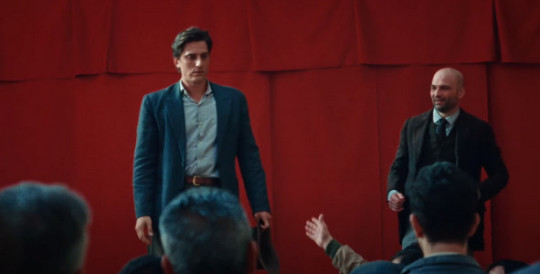
oleh: Ikra Amesta
1 note
·
View note
Text
ALFREDO E CATTERINA

(prosegue dal post del 3 settembre)
Questi invece sono Catterina Bonoli e Alfredo Casadei, genitori di mio nonno Dino e miei bisnonni. Vivevano a San Martino in Strada su viale dell’Appennino, che ai tempi si chiamava via dei Castelli, nella casa fatta costruire da Alfredo nel 1935. Nella stessa casa andò a vivere mia nonna Elena quando nel '46 sposò il nonno, trasferendosi dalle poco distanti case popolari. Catterina (con due "T"), nata nel 1886, era una casalinga, mentre Alfredo, nato due anni dprima, era un invalido della Grande Guerra. Impegnato nelle battaglie dell'Isonzo con il "Reggimento dei forlivesi”, fu colpito alla schiena da un proiettile austriaco e rimase paralizzato a vita. Non venne operato e tenne la pallottola conficcata nella schiena fino al '42, quando morì anche a causa dell’infezione. Assieme alle foto ho trovato le tessere dell’Associazione fra Mutilati e Invalidi di Guerra e quelle dell’Associazione Nazionale Combattenti di Forlì, che gli stessi fascisti criticarono come l’unica in tutta Italia a non essere allineata al Regime. Di ideali repubblicani, trasmise a nonno Dino lo spirito risorgimentale di Felice Orsini e l’avversione alla monarchia di Mazzini e Garibaldi. Al cimitero di San Martino in Strada sono sepolti anche i suoi genitori, miei trisavori, Casadei Secondo Giuseppe e Capanni Assunta, di cui per ora non so nulla. Mia madre Laila, figlia di Dino, nipote di Alfredo e bisnipote di Secondo Giuseppe, è l'ultima Casadei in famiglia. Dopo di lei il ramo si estinguerà.
(continua, forse)
1 note
·
View note
Text
Martin Eden
Life’s bitter contradictions inevitably take a toll on every human being, but none more so than the writer with plenty of time on their hands. The mental cost of endlessly thinking and philosophising are readily apparent throughout Pietro Marcello’s mesmerising drama Martin Eden, which transposes Jack London’s Oakland-set novel about a self-made novelist/poet who experiences success and creative disappointment during an unspecific moment in 20th-century Naples.
During the film’s beguiling opening sequence, Marcello uses degraded silent film footage to signify a tormented, broken artist slipping back in time to confront his past. We see crowds of aged faces, and a train disappearing into a dark tunnel. Here, in the textural realm of 16mm celluloid dreams, Martin Eden (Luca Marinelli) ascends the stairs of a merchant ship, a young man with scars on his face, the torso of Burt Lancaster and the visage of a Roman god.
At this point, Martin seems to careen through life almost instinctually, taking jobs without thinking beyond the next paycheque, and seducing women who kindly look his way. He even intervenes when the dock’s local security guard harasses a young man for trespassing, levelling the former with one punch.
This Good Samaritan act gives him access to the wealthy Orsini family, whose oldest daughter Elena (Jessica Cressy) instantly catches his eye. But aside from their mutual physical attraction, Martin sees in her the appeal of education and knowledge. Their interactions inspire him to think differently about the world. To paraphrase one exchange on the subject, he wants to be intellectually bold, like Baudelaire’s poems.

Almost immediately, judgments associated with class and political affiliations complicate Martin’s pursuit of becoming a published writer. This doesn’t stop Marcello from infusing the film’s first half with the stylistic energy and vitality that mirrors the character’s breakneck evolution. Marco Messina and Sacha Ricci’s score, a convergence of classical tones and modern synch beats, plays a pivotal role in giving the film this sense of momentous grace.
But Martin’s infatuation with individualism is no doubt clouded by naiveté and self-indulgence. There are numerous moments when supporting characters warn him of the cultural, social and historical tensions that will inevitably complicate his quest to be a writer. Elder statesman poet Briss (Carlo Cecchi) tries to enlighten Martin about the worthiness and necessity of socialism. A surrogate matriarch named Maria (Carmen Pommella) once tells him: “I don’t dream like you. I look life straight in the face.”
That sort of blunt confrontation with life is something Martin goes from experiencing everyday to observing from afar. Like London’s disillusioned American protagonist, this numbs him to the institutional and political norms that allow fascist movements and poverty to flourish. By the film’s stagnant and distressing conclusion, all the vibrancy that was once present has been hollowed out.
Martin’s hair is bleached blond, and his teeth have been stained brown. “Life disgusts me, “ he confesses. But it’s his cancerous arrogance, the choice to live and create and judge from a vaulted ideological perch, that has led him to forget about all the worthy stories that would invalidate this cynical statement.
Little White Lies is committed to championing great movies and the talented people who make them. But to keep going, and growing, we need your support. Become a member today.
youtube
ANTICIPATION. The Lost and Beautiful director adapts Jack London as a dramatic Italian heavyweight. 4
ENJOYMENT. An epic, vital portrait of ideological ambition and decay. 4
IN RETROSPECT. It’s hard to forget the emotional scars left behind by Luca Marinelli’s titanic performance. 4
Directed by Pietro Marcello
Starring Luca Marinelli, Jessica Cressy, Vincenzo Nemolato
The post Martin Eden appeared first on Little White Lies.
source https://lwlies.com/reviews/martin-eden/
0 notes
Text
Non solo libri: lungo un mese e mezzo, 60 appuntamenti, per oltre 70 tra scrittori, autori ed artisti, e cinque comuni pronti a fare un tuffo nelle pagine. All’ottava edizione, il “Salento Book, Festival Nazionale del Libro”, si allarga ad altri due centri del Salento, Galatina e Galatone, che si aggiungono ai tre già protagonisti dello scorso anno, Corigliano d’Otranto, Gallipoli e Nardò, tutti in provincia di Lecce. In programma dal 7 giugno al 22 luglio 2018, il Salento Book si conferma così La Festa dei Libri, la Movida dei Lettori, diventando ancor di più una solida piattaforma da cui tuffarsi in un mare di storie.
Ogni anno, la manifestazione, organizzata come sempre dall’associazione culturale Festival Nazionale del Libro, presieduta dall’ideatore e direttore organizzativo della manifestazione, Gianpiero Pisanello, ospita gli scrittori delle più importanti case editrici nazionali, ma anche personalità del mondo dello spettacolo, della cultura, dell’arte, della musica, dello sport e della comunicazione.
Luciana Littizzetto, Serena Dandini, Albano Carrisi, Marco Travaglio, Dario Franceschini, Pierluigi Pardo, Caterina Chinnici, Chiara Francini, Gino Castaldo, Chiara Galiazzo, Selvaggia Lucarelli, Giovanni Impastato, Gianluigi Paragone, Marino Bartoletti, Antonio Manzini. Sono solo alcuni dei nomi scelti per l’edizione 2018 daLUCA BIANCHINI, al debutto da direttore artistico e, in particolare, conduttore degli eventi programmati tra il 18 e il 24 giugno. Al SBF ci si tuffa davvero in un mare di storie che spaziano dall’attualità ai racconti delle vite che hanno segnato i nostri tempi. Si parlerà di società, politica e poteri, con Roberto Napoletano, PieroFassino e Federico Rampini, di giornalismo e comunicazione, con Francesco Giorgino, di giustizia, con Luciano Violante e Marta Cartabia, di ingiustizie, con Alberto Matano. Focus sulle grandi inchieste che hanno coinvolto l’Italia con Giorgio Mottola e Danilo Procaccianti, mentre Antonio Caprarica accompagnerà i lettori alla scoperta delle vite dei “Royal baby”. Ancora, Duccio Forzano, Francesco Sole, Corrado Fortuna, Max Laudadio, Pino Strabioli, Pinuccio, Raffaella Fanelli, Francesco Rutelli, Peppe Vessicchio, Fabio Calenda, Simona Cavallari, Sergio Sylvestre, Luciano Melchionna, Gioele Dix, Gioia Bartali, Don Antonio Mazzi, Elena Catozzi, Don Antonio Rizzolo, Mons. Vito Angiuli, Annalaura Giannelli, Ada Fiore. Oltre alle presentazioni di libri, il programma si arricchisce con reading, live show, concerti, laboratori di lettura e iniziative legate al mondo dei libri dedicate ai bambini e ragazzi, anche con la partecipazione di Carmelo Chianura, Adelaide Di Bitonto, Marika De Chiara, Emanuela Gabrieli, Sandro Stefanini, H.E.R., Roberto Treglia, Alberto Greco, Giuseppe Pezzulla, Gianluca Longo, Alessandra Caiulo, Salvatore Casaluce, Roberto Chiga, Antonio Calò, Alice Montagnini, Rebecca Serchi, Luisa Carretti, Patrizia Frassanito, Elvira Zaccagnino, Luca Errani, Gianna Rosato, CarlaPetrachi, Marco Tuma, Francesco Cortese, Ottavia Perrone, Orchestra del Liceo Scientifico Leonardo Da Vinci di Maglie, Zolla dj.
Il libro come occasione di incontro e confronto, nelle piazze, sui sagrati delle chiese, tra le strade e i vicoli. Il successo di pubblico ottenuto negli ultimi sette anni dal Festival Nazionale del Libro conferma che il segmento cultura non sia semplicemente un’altra chance per creare appeal in una terra di per sé attrattiva, piuttosto un investimento logico e quasi scontato per una comunità che non deve dimenticare la ricchezza che un libro può contenere e la semplice bellezza di una storia tra le pagine.
La rassegna itinerante fa tappa quest’anno in cinque centri del territorio salentino confinanti, tutti ricchi di storia e tradizione, che in questo caso accolgono autori e pubblico in luoghi di pregio, simbolo della propria comunità. Piazze, castelli, sagrati, vicoli e corti che diventano teatro di libri, su scenografie di pietra leccese e carparo o di azzurro mare.
– Corigliano d’Otranto ospiterà gli incontri tra il Castello de’ Monti e il centro storico
– Galatina in piazzetta Orsini, a pochi passi dalla Basilica di Santa Caterina
– Galatone nell’atrio del Palazzo Marchesale, che guarda il Santuario barocco del Crocefisso, e in piazza San Demetrio
– Gallipoli in piazza Aldo Moro, nei pressi del Santuario del Canneto, sulla scena del Castello angioino affacciato sul mare
– Nardò nella “cinematografica” piazza Salandra e nel Chiostro dei Carmelitani.
Il SBF è finanziato dall’Assessorato all’Industria Turistica e Culturale della Regione Puglia nell’ambito del “Fondo per lo Sviluppo e la Coesione 2014-2020” e del “Piiil Cultura in Puglia” e con Comune di Corigliano d’Otranto, Città di Galatina, Comune di Galatone, Comune di Gallipoli e Città di Nardò. L’evento è patrocinatodall’Università del Salento, da Puglia Promozione – Agenzia Regionale del Turismo e da Puglia Events.
“Il sostegno che la Regione ha dato al Salento Book Festival, tramite il bando triennale per le attività culturali vinto, è utile al territorio anche perché serve a rendere stabile la programmazione, investendo sempre più nella rete tra comuni – ha detto Loredana Capone, Assessore all’Industria Turistica e Culturale della Regione Puglia, durante la conferenza stampa di presentazione dell’VIII edizione del SALENTO BOOK FESTIVAL svoltasi questa mattina a Bari, nella Mediateca Regionale Pugliese, alla presenza di sindaci e assessori dei cinque comuni partecipanti. Vanno sostenute le occasioni in cui si crea un vero e proprio bacino culturale che richiama così fette consistenti di turismo anche in mesi non del tutto centrali della stagione estiva, puntando sull’appeal del Salento ben oltre il mare, puntando ai centri storici. Siamo la penultima regione per numero di lettori: è per noi un dato odioso ma stiamo lavorando per uno spostamento d’asse, riempiendo sempre più di contenuti i bei contenitori che abbiamo, attrezzando i comuni per il sostegno della lettura”.
“Quello che più mi piace del Salento è che tutti si tuffano nel suo mare turchese, mentre c’è un entroterra meraviglioso fatto di paesini con tradizioni millenarie, bella gente e piatti fantastici – ha detto in conferenza Luca Bianchini, direttore artistico del SBF 2018. Mi piace l’idea che questi paesi abbiano costruito una rete per conoscersi e per farsi conoscere, e i libri siano il loro tramite. I libri come occasione per ritrovare le persone e per farle pensare. Dai piccoli scrittori alle grandi celebrità, tutti abbiamo qualcosa da dire e da imparare. E il Salento, con la sua calda bellezza, può essere una nuova meta per ritrovare se stessi”.
“Il Salento dell’industria turistica può investire nella nuova Movida del Lettore che il Salento Book Festival ha dimostrato di saper offrire, in grado di strutturarsi e consolidarsi – ha detto Gianpiero Pisanello, ideatore e direttore organizzativo del SBF. In una zona del Sud Italia record per flusso turistico vacanziero, trasformare i libri in star, attirare alla lettura migliaia di persone, spargere il seme della cultura nel vasto giardino dello svago e del tempo libero è un’operazione benefica per il tessuto sociale del paese”.
Tutti gli eventi sono ad ingresso libero (laboratori su prenotazione).
Info: 348 5465650
www.salentobookfestival.it
Salento Book Festival, la movida dei lettori in cinque comuni salentini Non solo libri: lungo un mese e mezzo, 60 appuntamenti, per oltre 70 tra scrittori, autori ed artisti…
#capone#corigliano#cultura#festival#galatina#galatone#gallipoli#libri#nardò#pisanello#Puglia#salento#Salento Book Festival
2 notes
·
View notes
Text
Reseña de la película Martin Eden y resumen de la película (2020)
Reseña de la película Martin Eden y resumen de la película (2020)
El encuentro de Elena con Martin está lejos de ser un encuentro lindo. Salva a su hermano Arturo (Giustiniano Alpi) de una paliza en los muelles y, como agradecimiento, es invitado a cenar. Es allí donde descubre que Baudelaire tiene una fan en Elena y que las chispas vuelan. Los otros miembros del clan Orsini, aunque agradecidos por salvar a Arturo, no pueden esperar a que se vaya. Por…

View On WordPress
0 notes
Photo
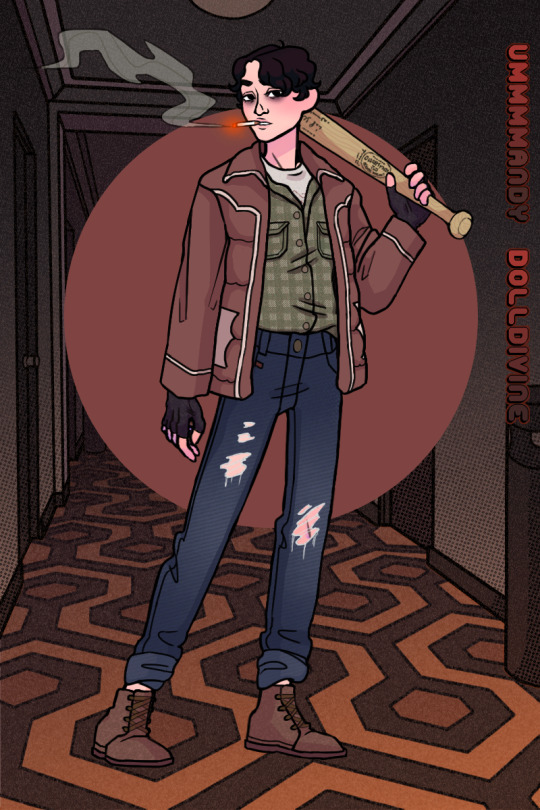

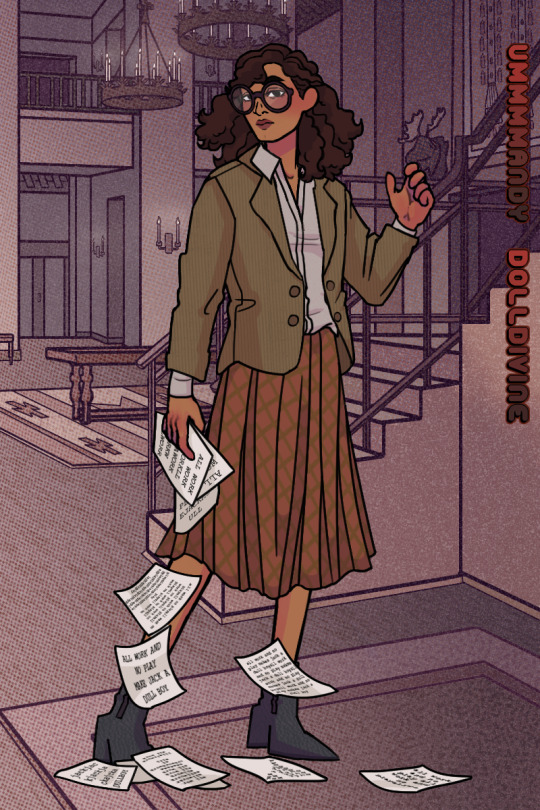



tagged by both @funkypoacher and @natesofrellis to do this meiker and then i threw in this meiker for my rdr2 ocs because i thought it was fitting for them (gonna do the barbie picrew in another post i have too many ocs to do them all in one lol)
i think most people have done at least the shining one, but i’ll tag @funkypoacher and @natesofrellis right back for the western one, along with @socially-awkward-skeleton, @adelaidedrubman, @confidentandgood, @aceghosts, @poetikat, @strangefable, @harmonyowl, and anyone else wanting to make their ocs in either of these meikers!
SYBILLE LA ROUX (FC5) sneaking into the veterans center (again) to see jacob
JONAH SEED (FC5) knowing that the deputy is somewhere lurking around his lavish house, but he can’t find them
PAOLA ORSINI (UNCHARTED) looking for the conference room in the hotel she’s staying at and losing her lecture notes along the way
ARI VASQUEZ-SULLIVAN (UNCHARTED) ready to head out on the next adventure and wondering what’s taking elena, nate, and sully so long to get moving,
KATHERINE VOGEL (RDR2) showin’ off her new outfit, and
HENRIETTA “ETTA” GRAVES (RDR2) assembling the least respectful mourning wear she possibly can
#oc: deputy sybille la roux#oc: jonah seed#oc: paola orsini#oc: ari vasquez-sullivan#oc: katherine vogel#oc: henrietta 'etta' graves#my ocs#dfa;lskdfj don't mind the red circle to hide the twins in syb's meiker
18 notes
·
View notes
Note
the most recent iteration of that post of martin eden reviews had one where a critic compared him to Alain Delon... i'm dying at these
lol see that one to me read as a more straightforwardly “luca hot” thing because all i know about alain delon is that he’s hot and i need to see purple noon... but just in general, i am living for this. it’s very funny.
BTW, the best piece of writing i have read on Martin Eden (which i have not seen, it’s not out here yet), which will not be an entry in any of these threads as it doesn’t talk about Marinelli very much - or at least not in this kind of way - is Phoebe Chen’s piece from Film Comment, the January/February issue. sadly it’s not available on their website, but if you can access scribd you can read it here. here’s a bit:
Anyone who has ever been thrilled into critical pursuit by a single moment of understanding knows the first beat of this story. Bolting through book after book, Martin is fired by the ever-shifting measure of his knowledge. In these limitless stretches of facts to come, there’s the promised glow of sheer comprehension, the way it clarifies the world as it intoxicates: “All hidden things were laying their secrets bare. He was drunk with comprehension,” writes London. Marcello is just as attentive to how Martin understands, a process anchored to the past experiences of his working body. From his years of manual labor, he comes to knowledge in a distinctly embodied way, charming by being so literal. At lunch with the Orsinis, he offers a bread roll as a metaphor for education and gestures at the sauce on his plate as “poverty,” tearing off a piece of education and mopping up the remnants with relish. Later, in a letter to Elena, he recounts his adventures in literacy: “I note down new words, I turn them into my friends.” In these early moments, his expressions are as playful as they are trenchant, enlivened by newfound ways of articulating experience. His writer’s optimism is built on a faith in language as the site of communication and mutual recognition. So follows his tragedy.
0 notes